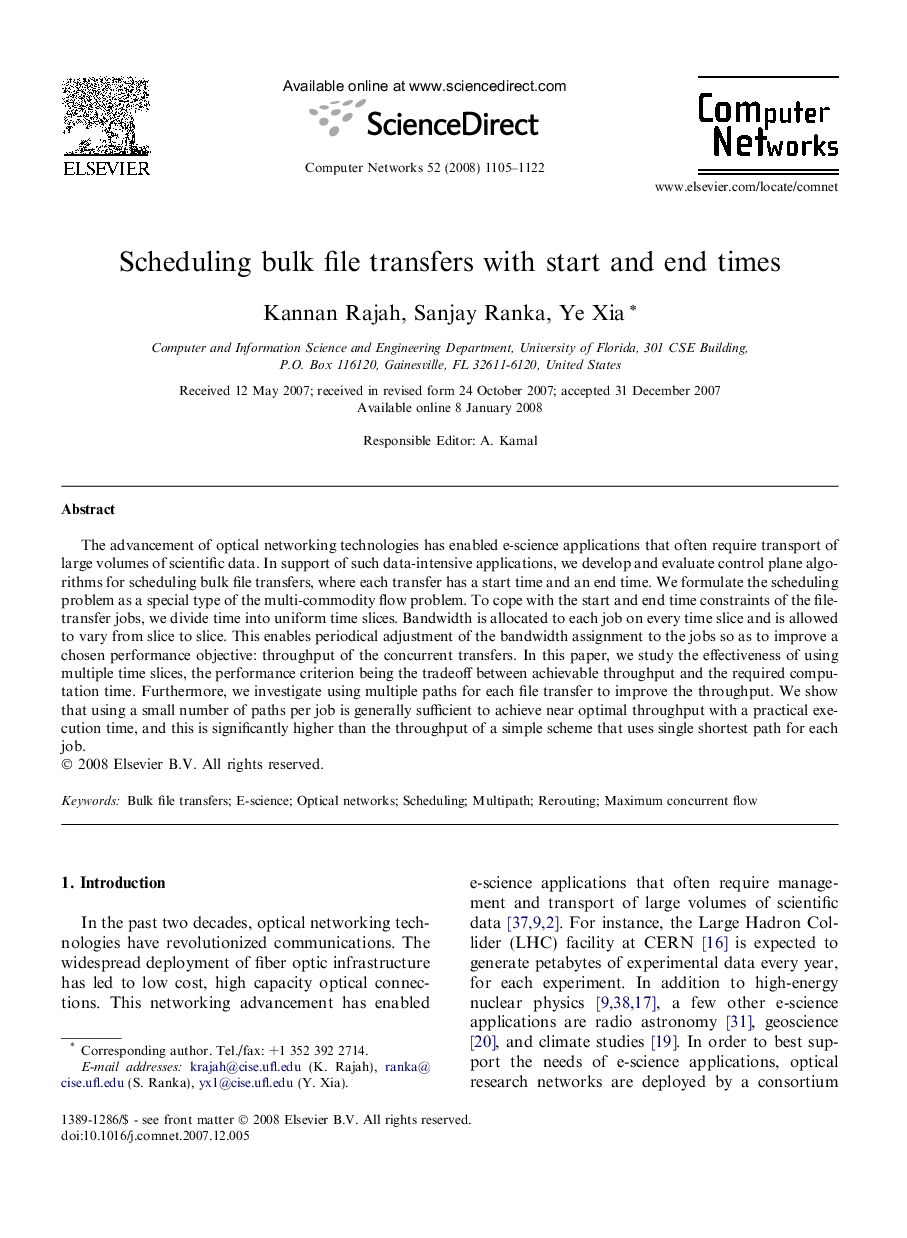| Article ID | Journal | Published Year | Pages | File Type |
|---|---|---|---|---|
| 453225 | Computer Networks | 2008 | 18 Pages |
The advancement of optical networking technologies has enabled e-science applications that often require transport of large volumes of scientific data. In support of such data-intensive applications, we develop and evaluate control plane algorithms for scheduling bulk file transfers, where each transfer has a start time and an end time. We formulate the scheduling problem as a special type of the multi-commodity flow problem. To cope with the start and end time constraints of the file-transfer jobs, we divide time into uniform time slices. Bandwidth is allocated to each job on every time slice and is allowed to vary from slice to slice. This enables periodical adjustment of the bandwidth assignment to the jobs so as to improve a chosen performance objective: throughput of the concurrent transfers. In this paper, we study the effectiveness of using multiple time slices, the performance criterion being the tradeoff between achievable throughput and the required computation time. Furthermore, we investigate using multiple paths for each file transfer to improve the throughput. We show that using a small number of paths per job is generally sufficient to achieve near optimal throughput with a practical execution time, and this is significantly higher than the throughput of a simple scheme that uses single shortest path for each job.
